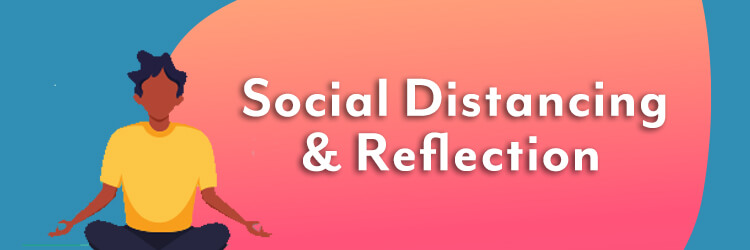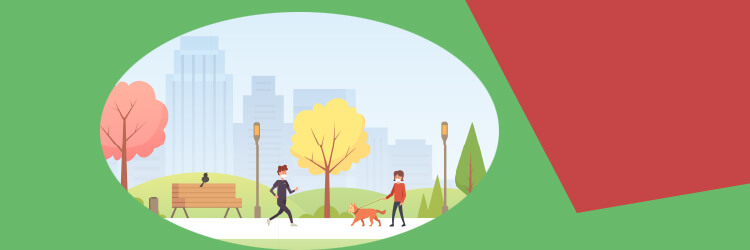[vc_row][vc_column][vc_column_text]Right now many people are focused on survival. It’s okay if you just need to make it through each day.
But if you have the mental capacity, social distancing is an opportunity for reflection. For some of us—not everyone—life has slowed down.
In fact, just making it through each day can force you into the present. Being present is helpful for reflection.
But the reflection itself can be about the past, present, or future. Now that we’ve been social distancing for months, it’s a good time to look back on this period. You might ask yourself specific questions. What have I been doing to cope? Who have I been connecting with most strongly? How much time have I spent on social media? What has helped me stay sober?
To me, asking direct questions helps; otherwise, reflection seems abstract and my mind starts to wander. With questions, I have something specific to contemplate.
Journaling is a good responsive outlet. Writing things down helps me understand what I’m thinking. As a bonus, years from now, you might be glad to have a document of how you were feeling during this time.
That said, writing isn’t the best outlet for everyone. Maybe you crochet or sketch—or do some other activity where your hands are occupied but your brain maybe isn’t. These types of activities can help open you up to contemplation.
That covers the past; but some people (myself included) find it harder to reflect on the present. If you want to be intentional in the present, notice your surroundings. I’ve found this easiest to do on walks. There are so many things to notice outside. Even flowers alone: take in the way they look, they way smell, how they move in the wind. Do the same with buildings, houses, trees, people.
Another seemingly simple way to be present is to notice the way your feet feel on the ground, or how the weight of your body feels against the chair. I say “seemingly” simple because at least for me, it’s not. I have to remind myself to do it, and my mind moves away quickly.
These are also helpful skills to fall back on if you are panicking. Reflection in general slows us down. It gets us to observe rather than necessarily act, which can be calming. One of Merriam-Webster’s definitions for “reflection” is “a thought, idea, or opinion formed or a remark made as a result of meditation.” So in a way, reflection is meditation.
With all this talk about reflection bringing you into the moment, it might seem counterintuitive to reflect on the future. But I think there is space for doing so. You can meditate on your intentions. As social distancing continues, how can I feel more connected? How do I want to spend my free time? What can help me stay sober?
The gravity of current events can be very hard on mental health. That’s all the more reason to spend time reflecting—so you can connect to and work through your emotions. It’s rare that at the same time as so many troubling things are happening, we are forced to slow down and really pay attention, not move to the next thing. That is an opportunity.
If you are struggling with a substance use or co-occurring mental health disorder during the COVID-19 crisis, there is hope. TruHealing Centers is open, with hospital-grade sanitization and telehealth options, ensuring your safety in treatment. At our facilities across the country, our staff—many of whom are in recovery themselves—will help you build toward long-term sobriety. Call an admissions specialist at 410-593-0005.[/vc_column_text][/vc_column][/vc_row]









